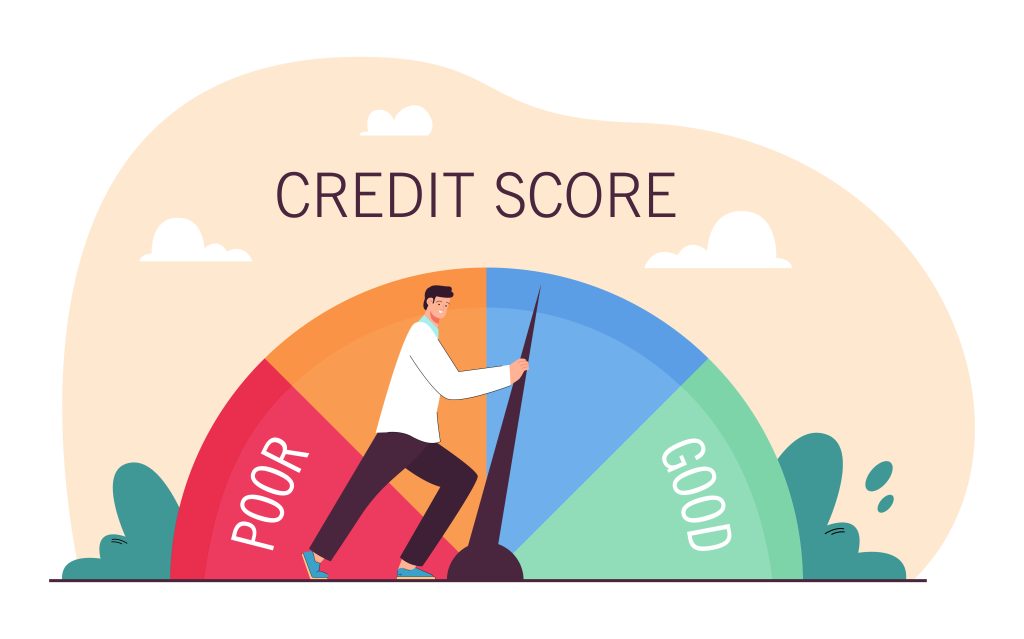What is a FICO Score? Understand how it can affect your financial life

Anúncios
The FICO Score is one of the most important tools in the financial landscape of the United States, influencing a wide range of economic decisions that directly impact an individual’s financial life.
Created by Fair Isaac Corporation, the FICO Score is a widely used metric by creditors to assess consumers’ credit risk.
Anúncios
Having a good understanding of how this score works can be crucial for managing and improving your financial health.
In this article, we will explore in detail what the FICO Score is, its importance, how it is calculated, and how it differs from other credit scores.
Anúncios
So, if you want to learn more about the FICO Score, keep reading and stay informed on the subject.
What is a FICO Score and how does it work?
The FICO Score is a credit score that ranges from 300 to 850, reflecting the likelihood of a consumer repaying their debts on time.
Basically, the higher your FICO Score, the lower the perceived risk by creditors. This score is calculated based on data contained in your credit report, which is provided by credit bureaus such as Equifax, Experian, and TransUnion.
The FICO Score serves as an indicator of your past financial behavior and as a projection of your ability to meet future financial obligations.
The functioning of the FICO Score is based on an algorithm that considers five main factors from your credit history.
These factors are weighted differently, resulting in a score that creditors use to decide whether to grant credit, what interest rates to apply, and even the credit limit to be offered.
Understanding these conditions and how they affect your score is essential for anyone who wants to maintain good financial health.

Why is the FICO Score important?
The importance of the FICO Score cannot be underestimated. It plays a central role in an individual’s ability to obtain credit for major purchases, such as a home or a car, and also influences the terms of these loans, such as interest rates and payment terms.
Additionally, the FICO Score can impact other aspects of financial life, including the ability to rent a property, obtain a credit card, and even be considered for certain jobs.
A high FICO Score can result in credit offers with lower interest rates, saving thousands of dollars over time.
On the other hand, a low score can lead to high-interest rates or even credit denial. Therefore, maintaining a good FICO Score is essential to ensure access to the best financial conditions available in the market.
What is a good FICO Score?
A good FICO Score is generally considered to be any score above 670. However, the exact definition can vary depending on the creditor and the type of credit requested. The FICO Score is categorized as follows:
- Excellent: 800-850
- Very good: 740-799
- Good: 670-739
- Fair: 580-669
- Poor: 300-579
Having a FICO Score of 670 or higher is a positive sign for creditors, indicating that you have a healthy credit history and are a reliable borrower.
Scores below this level indicate a higher risk to creditors, which can result in less favorable loan conditions. Therefore, it is important to monitor and take steps to improve your score if necessary.

How is the FICO Score calculated?
The calculation of the FICO Score is based on five main factors that make up your credit history. Each of these factors is weighted differently, reflecting its relative importance in determining the score.
Payment history (35%)
Payment history is the most important factor in determining the FICO Score, accounting for 35% of the total score.
This criterion analyzes whether you have a history of timely payment of your debts, including credit cards, loans, and other financial obligations.
Late or delinquent payments can negatively affect your score, while a consistent history of on-time payments can significantly increase it.
Credit utilization (30%)
Credit utilization refers to the amount of available credit you are currently using.
It is calculated by dividing the total credit balance by the total available credit limit. Ideally, you should keep utilization below 30% to avoid damaging your score.
High credit utilization can indicate to creditors that you are dependent on credit, which can be seen as a risk.
Length of credit history (15%)
The length of credit history, which makes up 15% of the FICO Score, measures how long you have been using credit.
In general, the longer your credit history, the better your score, as creditors prefer to see a long history of responsible financial behavior.
This includes the age of your oldest credit account, the age of your most recent account, and the average age of all your accounts.
New credit inquiries (10%)
New credit inquiries represent 10% of the total score and consider how often you apply for new credit lines.
Frequent applications can indicate that you are experiencing financial difficulties or that you are taking on more debt than you can manage, which can negatively affect your score.
However, sporadic credit applications, especially for specific and justifiable purposes, have a smaller impact.
Credit Inquiries (10%)
Credit inquiries occur when a financial institution reviews your credit report, usually in response to a credit application.
There are two types of inquiries: hard inquiries, which can affect your score, and soft inquiries, which do not affect it.
Hard inquiries made in a short period can signal that you are quickly taking on new debt, which can lower your score.

FICO Score vs. Credit Score: What’s the difference?
While the FICO Score is a form of credit score, it is not the only one. There are other scoring models, such as the VantageScore, which are also used by creditors.
The main difference between the FICO Score and other credit scores is the calculation methodology and the weights assigned to different factors.
For example, while the FICO Score prioritizes payment history, the VantageScore may give more weight to other aspects, such as recent credit behavior.
Additionally, different credit bureaus may report different information, resulting in variations in credit scores even within the same model.
Therefore, it is possible to have multiple credit scores that vary slightly depending on the source and the calculation model used.
Understanding the FICO Score and its importance is essential for anyone who wants to have a healthy financial life and achieve their economic goals.
Understanding how your score is calculated, what constitutes a good FICO Score, and how it differs from other credit scores can help you make informed and strategic decisions about how to manage your credit.
By maintaining a good FICO Score, you can ensure access to better credit terms, save money on interest, and improve your overall financial health.
To continue enhancing your financial knowledge and get more tips on how to improve your FICO Score, be sure to explore other articles on our website.





